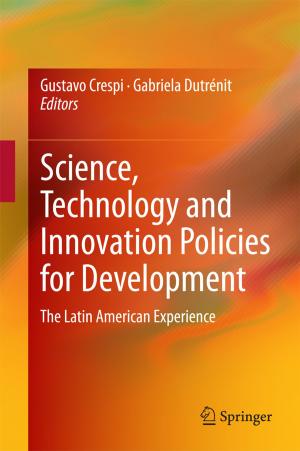Exploring the Psychological Benefits of Hardship
A Critical Reassessment of Posttraumatic Growth
Nonfiction, Health & Well Being, Psychology, Clinical Psychology, Personality| Author: | Eranda Jayawickreme, Laura E.R. Blackie | ISBN: | 9783319479897 |
| Publisher: | Springer International Publishing | Publication: | October 22, 2016 |
| Imprint: | Springer | Language: | English |
| Author: | Eranda Jayawickreme, Laura E.R. Blackie |
| ISBN: | 9783319479897 |
| Publisher: | Springer International Publishing |
| Publication: | October 22, 2016 |
| Imprint: | Springer |
| Language: | English |
Can adversity lead to enduring positive change across the lifespan? Providing a thoughtful and considered exploration of this question, this book presents a critical reassessment of posttraumatic growth, based on correcting prior theoretical and methodological limitations in the current research. Its core argument is that posttraumatic growth should be reconceptualized as positive personality change, and thus should be studied using novel methodological approaches from the field of personality psychology.
Broadly, this argument is put forward in five progressive sections. Beginning by giving a conceptual and interdisciplinary overview of posttraumatic growth as a phenomenon, the volume then reviews the current academic conceptualization of posttraumatic growth and makes a case for a ‘reset’ in the research. The next section maintains that posttraumatic growth is in fact a form of positive personality change and should be analyzed using personality science methodology. Using positive personality change as a theoretical foundation for posttraumatic growth, the following two sections look at posttraumatic growth in context. It is explored both in the long term, such as in the development of reflective knowledge and wisdom, and in specific situations such as with refugees in Sri Lanka and survivors of the Rwandan genocide. Lastly, Exploring the Psychological Benefits of Hardship: A Critical Reassessment of Posttraumatic Growth concludes by offering recommendations for scholars and researchers that will improve the quality of research on posttraumatic growth, and will advance this important and worthy field.
Can adversity lead to enduring positive change across the lifespan? Providing a thoughtful and considered exploration of this question, this book presents a critical reassessment of posttraumatic growth, based on correcting prior theoretical and methodological limitations in the current research. Its core argument is that posttraumatic growth should be reconceptualized as positive personality change, and thus should be studied using novel methodological approaches from the field of personality psychology.
Broadly, this argument is put forward in five progressive sections. Beginning by giving a conceptual and interdisciplinary overview of posttraumatic growth as a phenomenon, the volume then reviews the current academic conceptualization of posttraumatic growth and makes a case for a ‘reset’ in the research. The next section maintains that posttraumatic growth is in fact a form of positive personality change and should be analyzed using personality science methodology. Using positive personality change as a theoretical foundation for posttraumatic growth, the following two sections look at posttraumatic growth in context. It is explored both in the long term, such as in the development of reflective knowledge and wisdom, and in specific situations such as with refugees in Sri Lanka and survivors of the Rwandan genocide. Lastly, Exploring the Psychological Benefits of Hardship: A Critical Reassessment of Posttraumatic Growth concludes by offering recommendations for scholars and researchers that will improve the quality of research on posttraumatic growth, and will advance this important and worthy field.















